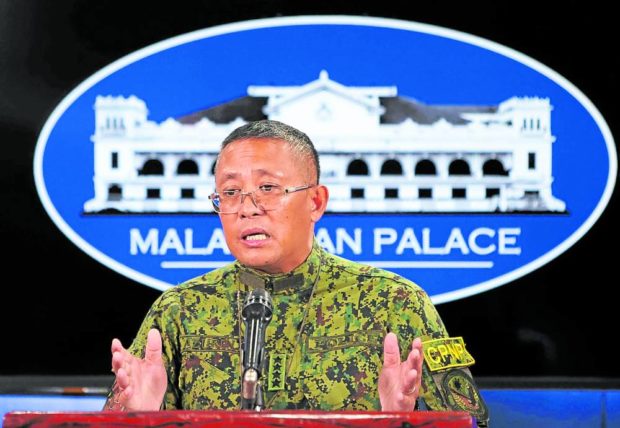MANILA, Philippines — The Chinese Embassy in Manila said on Monday that it had requested Philippine authorities to intensify efforts to protect its nationals amid a recent spate of kidnappings involving Chinese victims.
“We immediately checked and verified the specific cases, held discussions with the [Chinese-Filipino] communities, and lodged representations with the Philippine law enforcement authorities, requesting the Philippine side… to protect the legitimate rights and interests of Chinese citizens in the country,” it said in a statement sent to the Inquirer.
The embassy noted that in recent years, there had been frequent cases of “kidnapping, blackmailing, illegal detention, and other vicious cases” targeting its nationals due to online gaming and telecommunications fraud.
It urged Philippine agencies to “strengthen our law enforcement cooperation and their crackdown on kidnapping, blackmailing, illegal detention, and other criminal acts” that endanger its nationals.
But at the same time, it also reminded its citizens to “firmly establish legal awareness, keep away from immoral activities, stay away from online gambling and telecommunications fraud, and avoid falling into gambling-related blackmailing and injury cases.”
At the Senate, a hearing was set on Sept. 15 on the “kidnapping wave” that had reportedly victimized dozens, including Chinese and Filipinos, and the spread of disturbing videos showing supposed victims being tortured by their captors, some of whom appeared to be foreigners.
“We want the Philippine National Police to shed light on the videos circulating and the reports coming from sources so that we will know if these are true or not,” Sen. Ronald dela Rosa, Senate public order and dangerous drugs committee chair and a former PNP chief, told reporters.
Conflicting statistics
Senators Grace Poe and JV Ejercito had pushed for the inquiry in separate resolutions as they also called on the PNP to stop the spate of abductions.
Both noted that the police had so far presented conflicting statistics about the number of cases, which Poe said only caused “undue and unnecessary anxiety and fear [in] our countrymen.”
She observed that while PNP chief Gen. Rodolfo Azurin Jr. had tried to downplay the string of kidnappings, there were many reports and videos of such incidents on mainstream and social media.
“(This) kidnapping wave is creating a state of fear, anxiety and vulnerability among Filipinos,” Poe said in Senate Resolution No. 195. “There is an urgent need to determine the status of these cases, possible motives, agency efforts to identify the perpetrators and the measures instituted by relevant authorities to prevent the continuous rise of abduction in the country,” she added.
Ejercito said he was particularly disturbed by the proliferation of video clips on various messaging apps and social media platforms showing people, believed to be kidnap victims, being tortured.
One showed a blindfolded man whose left ear was severed by one of his captors as two other persons held him down. According to Ejercito, another showed several men hitting with a hammer their bloodied victim, all of them “Chinese-looking,” as they engaged in “Chinese-sounding” conversation.
“While we still don’t know if these videos were real or just a hoax, or if these really happened in the country recently, we need to check [their] veracity…,” he said.
“The government should act swiftly to put an end to this spate of kidnappings and killings, take control of the situation and guarantee our people of their safety and provide an assurance of a peaceful community,” Ejercito said in Senate Resolution No. 194.
Test for gov’t
He added that it would be better if President Ferdinand Marcos Jr. himself would issue a statement directing the police to solve the kidnappings as he surmised that criminal syndicates may be “testing the waters.”
“Every time there’s a new administration, (criminal groups) test the leadership. They are testing (the Marcos) administration and the new PNP leadership,” Ejercito said.
Azurin, meanwhile, continued to deny the supposed kidnappings of Chinese-Filipino nationals in Metro Manila although he said he had deployed more policemen near Philippine offshore gaming operators (Pogo) establishments in the capital region amid an increasing number of abducted Pogo workers.
“We saw the need to beef up police presence in entertainment areas, specifically in Parañaque, Pasay and Makati,” he told reporters on Monday.
PNP data showed that out of 27 kidnapping cases from January to September this year, 15 were Pogo-related, slightly higher from the 12 recorded in the same period in 2021.
Azurin said it was a challenge to identify foreign nationals in Pogo companies, as well as legitimate operators, because of lack of records.
“We really need to engage our immigration [bureau] so we would know who are the Chinese nationals coming to our country,” he said, adding that the information would make it easier for the PNP to investigate such cases.
Azurin also said that members of the Federation of Filipino-Chinese Chambers of Commerce and Industry Inc. had told him that “the [recent] reported kidnappings are not true.”
“We are really very fortunate because they have volunteered to help us and to report to us any information regarding any crime incident that they know about. As I’ve said, there are no crimes that are reported to us that we have not acted on,” he said.
As for the supposed abduction videos, Azurin said these were old incidents that were being released on social media to make it seem they happened recently.
“I really don’t know their intent in releasing those videos because if they think they are hurting the PNP in posting them, they are … [also hurting] the economy,” he said.
—WITH A REPORT FROM FRANCES MANGOSING
RELATED STORIES
More kidnappings show drug problem is coming back – Dela Rosa
Probe reports of abductions, rape or penalize fearmongers, Revilla tells PNP
